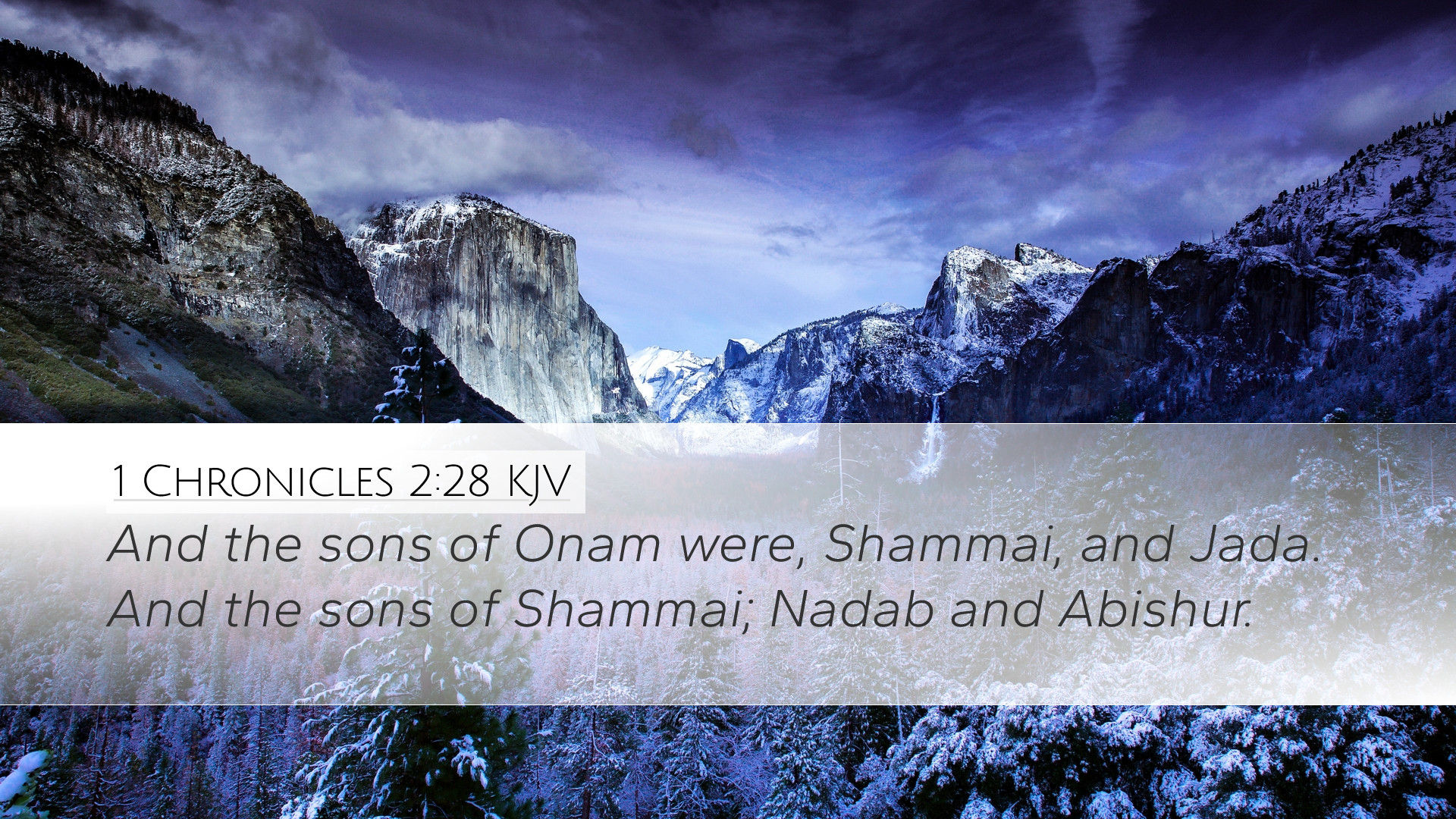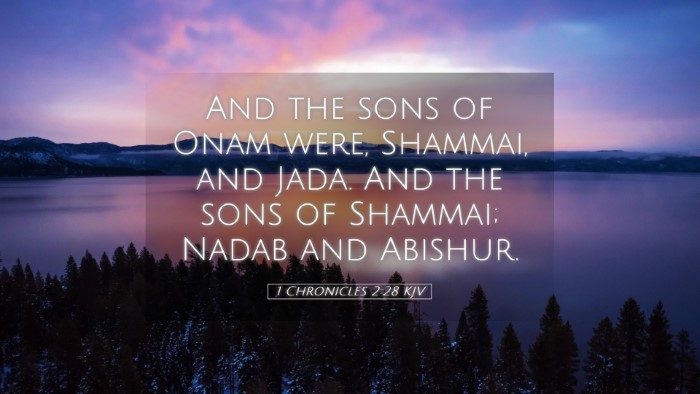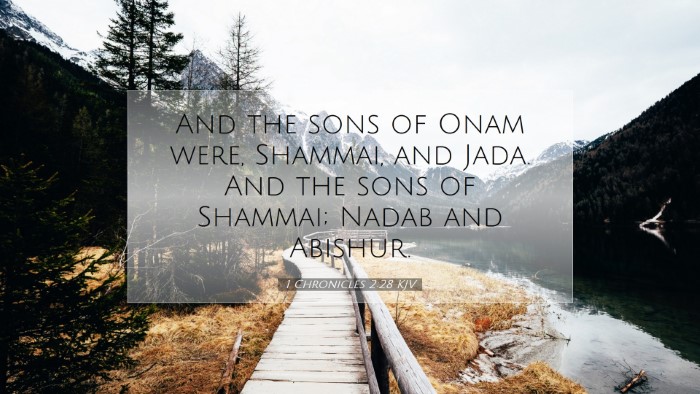Commentary on 1 Chronicles 2:28
Verse: 1 Chronicles 2:28 - "And the sons of Sheshan were Ahlai and Ahitub."
Introduction
This verse comes from a genealogical record that is significant in the broader narrative of the Chronicles, particularly the lineage of the Tribe of Judah. Understanding these names and their implications is crucial for biblical scholars and theologians.
Genealogy and Its Importance
The genealogies in the Book of Chronicles serve several purposes:
- Historical Documentation: They record the lineage and bolster the claims of the Israelites to the land and their identity as God's chosen people.
- Theological Significance: The genealogies demonstrate God’s faithfulness to His covenant promises through the families of Israel.
- Social Structure: They highlight the social and religious hierarchies within Israel, essential for understanding the dynamics of worship and leadership.
Insights from Public Domain Commentaries
Matthew Henry's Commentary
Matthew Henry notes that the mention of Sheshan’s sons, Ahlai and Ahitub, while seemingly minor, fits into the larger narrative structure. He elucidates that genealogies often serve to keep track of prominent figures in Israel's history. He suggests that Ahlai and Ahitub represented the continuation of Sheshan's legacy and the fulfillment of God's promises through subsequent generations.
Albert Barnes' Notes
Albert Barnes expands on the significance of these names. He identifies Ahlai and Ahitub as individuals who likely played key roles in the community after Sheshan. He emphasizes the importance of family lineage in sustaining Israel’s identity. Barnes highlights that these names are part of a broader narrative demonstrating the preservation of God's people through recognizable lineages, ensuring that their history is not lost but celebrated.
Adam Clarke's Commentary
Adam Clarke provides an insightful exploration of the implications of familial ties within the Israelite community. He points out that genealogical records were crucial for establishing one’s standing in society, especially concerning priestly and kingly lines. Clarke indicates that the mention of these names underscores the importance of each individual within the divine plan, suggesting that even lesser-known figures contribute to God's overarching purposes.
Theological Implications
The individuals mentioned in this verse, Ahlai and Ahitub, serve as a reminder of God's sustaining grace through generations. The values of family, remembrance, and covenant are deeply entrenched in their names:
- Covenantal Faithfulness: Their names remind us that God honors His promises across time and lineage.
- Community Identity: They exemplify the importance of community and belonging, rooted in shared heritage and faith.
- God’s Sovereignty: Even in the detailed records, it emphasizes that God works through the generations to fulfill His purposes.
Practical Reflections for Contemporary Readers
The implications of 1 Chronicles 2:28 extend beyond genealogical interest. For modern believers, this verse can inspire several practical reflections:
- Commitment to Heritage: It encourages individuals to appreciate and understand their spiritual and familial heritage.
- God’s Work in Family Life: It highlights how God works within families across generations, emphasizing prayer and faithfulness in all relational contexts.
- Value of Each Individual: The mention of Ahlai and Ahitub reminds us that every individual, regardless of how seemingly insignificant, has a role in God's story.
Conclusion
1 Chronicles 2:28, while a brief glimpse into biblical genealogy, opens a window into profound theological truths and practical applications. The insights from Matthew Henry, Albert Barnes, and Adam Clarke underscore the verse's significance in affirming God's faithfulness through generations, the continuity of His covenant, and the importance of each individual in the community of faith.


